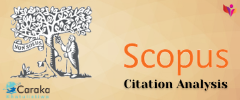Students’ Social Literacy in Their Daily Journal
Abstract
This study was aimed to determine the students’ social literacy in their daily journals at grade four of Al-Fauzien Islamic Elementary School in Indonesia. The ability of social literacy is the capacity of a person to be able to live and contribute to his or her community, which involved intellectual skills, social skills, cooperative skills, and attitudes and values. The student's daily journal is a collection of student writings whose contents expose students' skills in reflecting experiences, findings, critical thinking, connecting ideas, exploring and expressing their knowledge. The method used in this study is a qualitative method with qualitative content analysis techniques. The data of this study are the sentences taken from students 'daily journals, which were then reduced, coded based on students' social literacy aspects that appeared and analyzed, then triangulated. The results of the study revealed the ability of students’ social literacy as follows: intellectual skills 34.1%, social skills 12.6%, cooperation skills 14.7%, and social attitudes and values 38.5%.
Keywords
Full Text:
PDFReferences
Agustyaningrum, N. (2015). Mengembangkan Keterampilan Berpikir Tingkat Tinggi dalam Pembelajaran Matematika SMP. PYTHAGORAS, 4(1).
Arifin, B.S. (2015). Psikologi Sosial. Bandung: CV Pustaka Setia.
Arthur, J., & Davison, J. (2000). Social literacy and citizenship education in the school curriculum. Curriculum journal, 11(1), 9-23.
Bearne, E. (2003). Rethinking literacy: Communication, representation and text. Literacy, 37(3), 98-103.
Cook-Gumperz, J. (2006). The social construction of literacy (Vol. 25). Cambridge University Press.
Dwijananti, P., & Yulianti, D. (2010). Pengembangan kemampuan berpikir kritis mahasiswa melalui pembelajaran problem based instruction pada mata kuliah fisika lingkungan. Jurnal Pendidikan Fisika Indonesia, 6(2), p.113.
Goleman, D. (2000). Kecerdasan Emosional. Jakarta: PT. Gramedia Pustaka Utama.
Gresham, F. M., Sugai, G., & Horner, R. H. (2001). Interpreting outcomes of social skills training for students with high-incidence disabilities. Exceptional children, 67(3), 331-344.
Indrastoeti, Jenny, Hasan Mahfud. (2015). Pembelajaran Kooperatif dengan pendekatan Eksperiental Learning untuk Meningkatkan Keterampilan Sosial. Mimbar Pendidikan Dasar, 2(2), hlm. 143
Jacobsen, D. A., Eggen, P., & Kauchak D. (2009). Methods for Teaching Metode-metode Pengajaran Meningkatkan Belajar Siswa TK-SMA. Yogyakarta: Pustaka Pelajar.
Jarolimek, J. (1982). Social Studies in Elementary Education. New York: MacMillan Publishing Company.
Jensen, E. (2007). Brain Based Learning. California: Crowin Press.
Johnson, S. D. (1997). Learning technological concepts and developing intellectual skills. In Shaping Concepts of Technology (pp. 161-180). Springer, Dordrecht.
Krippendorf, Klaus. (2004). Content Analysys An Introduction to Its Methodology 2nd Edition. London: Sage Publication.
Lgleysteen, “Social Illiteracy”, Serendip Studio Online; http://serendip.brynmawr.edu/exchange/ed-250-literacies-and-education/lgleysteen/social-illiteracy (16 Januari 2018)
Neundorf, Kimberly A. (2002). The Content Analysis Guide Book. London: Sage Publication.
Papalia, E. Diane., Sally W. O., & Ruth D. F. (2015). Human Development. Jakarta: Prenadanedia Group.
Preston, R. (2006). UNESCO, Education for All Global Monitoring Report, ISBN 92-3-103976-8, 2005, UNESCO, Paris (430pp.).
Rao, P. A., Beidel, D. C., & Murray, M. J. (2008). Social skills interventions for children with Asperger’s syndrome or high-functioning autism: A review and recommendations. Journal of autism and developmental disorders, 38(2), 353-361.
Reinertsen, P., & DaCruz, G. (1996). Using the daily newspaper and journal writing to teach large introductory sociology classes. Teaching Sociology, 24(1), 102-107.
Rose, C & Nichol, M.J. (2006). Accelerated Learning, Cara Belajar Cepat Abad XXI, Bandung: Nuansa Cendekia.
Ross, J. A. (1981). Improving adolescent decision—making skills. Curriculum Inquiry, 11(3), 279-295.
Sanderayanti, D. S. D. (2017). Pengaruh Motivasi Berprestasi dan Kemampuan Berpikir Kritis Terhadap Hasil Belajar Matematika Siswa di SDN Kota Depok. Jurnal Pendidikan Dasar, 6(2), 222-231.
Sapriya. (2015). Pendidikan IPS. Bandung: PT. Remaja Rosdakarya.
Supardan, D. (2015). Pembelajaran Ilmu Pengetahuan Sosial: Perspektif Filosofi dan Kurikulum. Jakarta: Bumi Aksara.
DOI: https://doi.org/10.53400/mimbar-sd.v5i3.12094
Refbacks
- There are currently no refbacks.
Copyright (c) 2018 Mimbar Sekolah Dasar

This work is licensed under a Creative Commons Attribution-ShareAlike 4.0 International License.
View Mimbar Sekolah Dasar Stats


.png)

.png)
